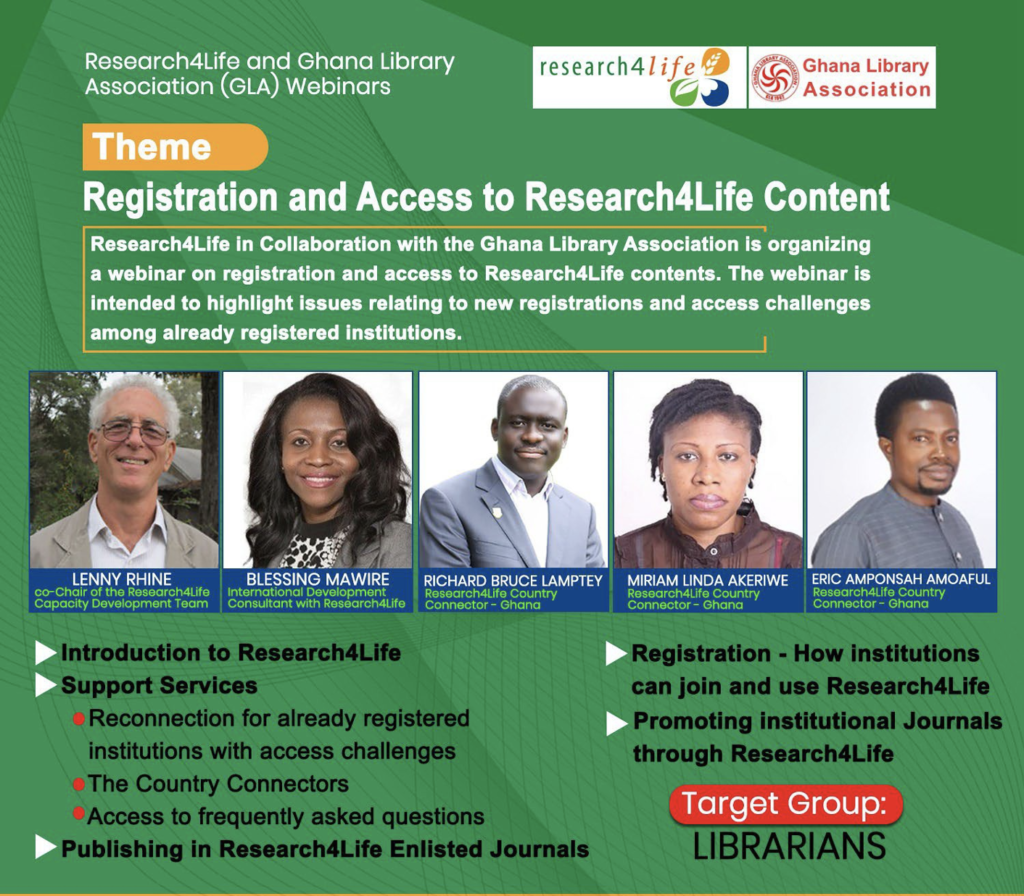Country Connectors make strides in raising awareness of Research4Life resources
In support of the Research4Life 2030 strategic plan, aiming to foster an inclusive, diverse and equitable scholarly environment, Research4Life has initiated a Country Connectors network project — funded in part by the Elsevier Foundation and Springer Nature.
The Country Connectors first global meeting and workshop was held virtually in February to enable deeper knowledge sharing, strengthened relationships and open more avenues for South-to-South collaborations.
The selection process for new countries to include in the Country Connectors project was finalized, in a process that utilized seven main indicators and in consultation from all the UN agencies: Democratic Republic of Congo, Republic of Moldova, El Salvador and Senegal will join the team.
At the country level, Country Connectors activities show a growing understanding of the nuances in each region, enabling more customized approaches to drive awareness and usage of Research4Life.
Ghana
The partnership with the Ghana Library Association provides an opportunity to reach an extended network of registered and eligible institution. 40 librarians have agreed to serve as Research4Life advocates in their institution, and a collaboration is planned to support institution-specific capacity building training.
A survey to understand users’ needs saw that out of 21 institutions that completed the form, 14 were registered to Research4Life, with some noting challenges including lack of access, intermittent interruption, and loss of access credentials. The 7 unregistered will be contacted to assist with the process.
Country Connectors Richard B. Lamptey, Dr. Miriam L. Akeriwe and Eric A. Amoaful also ran a webinar for librarians with support from project coordinator and co-chair of the Research4Life Capacity Development Team, Lenny Rhine — enabling productive discussions amongst users on challenges and shared solutions. Comments indicated that a majority of the participants hoped for more Research4Life webinars in the future: “I wish this webinar was being organized every month”, noted one participant.
As part of the engagement with the local publishers in Ghana, the Country Connectors identified and expanded a contact list of 36 publishers, with plans for an initial meeting in the second quarter.
Liberia
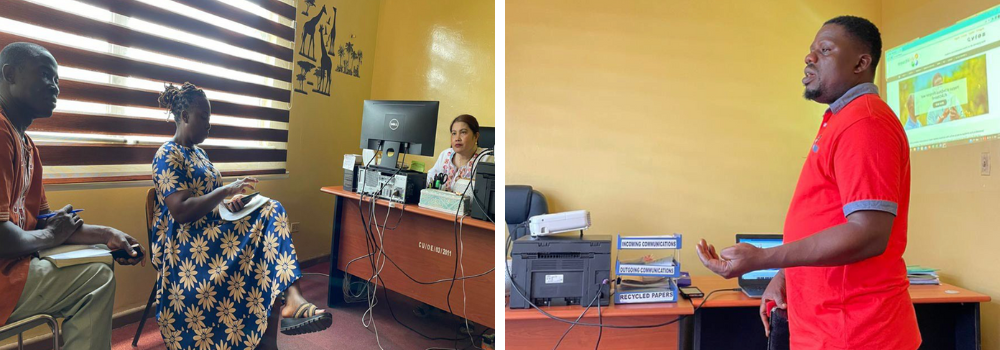
In March, Stephen S. Browne, Dean of Library Services for the African Methodist Episcopal University (AMEU) in Monrovia, and Research4life Country Connector for Liberia, embarked on outreach activities to 11 education and health institutions. All highlighted the lack of institutional internet access as a challenge. And as Liberia prepares for an election year, voter registration is taking place across the country, affecting working activities at most public entities.
At Cuttington Junior College, the Librarian noted that the lack of internet connectivity and computers were the primary reasons for the low usage of Research4life: electricity is being rationed, the library is allotted two hours of electricity a day. After the tour, a brief meeting was held with the authorities of the University, followed by a live demonstration of Research4life Portal.
From Cuttington, the team headed to Bong Community College to meet the Vice Chancellor, who welcomed the idea of Research4life and noted that the college does not have a functioning website and a campus network infrastructure.
At other institutes, a strike was taking place – particularly at Nimba Community College and at the Central Agriculture Research Institute (CARI), which hosts some of the best agricultural researchers and extensionists in the country.
United Republic of Tanzania
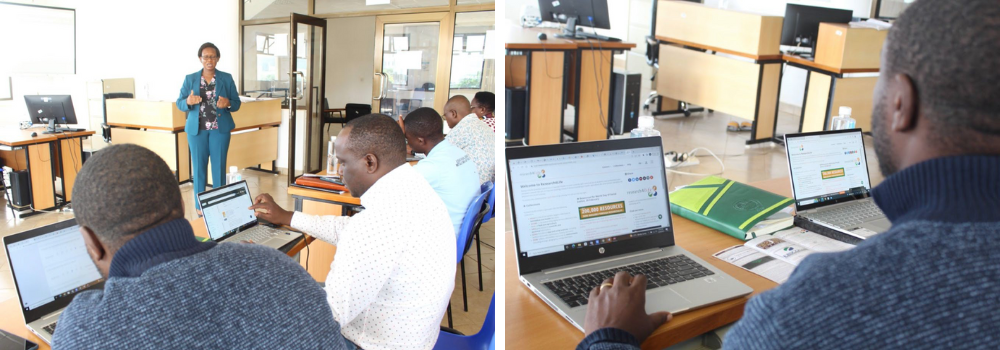
Country Connectors Dr Grace Msoffe and Agatha Mashindano focused on engagements with the local publishers to enhance visibility of the country’ research, which is key to its economic growth. They invited publishers to a Research4Life awareness-raising meeting, and highlighted the benefits of joining the Research4Life.
The Country Connectors also communicated with registered institutions requesting them to update their contact details, to ensure timely communication and sharing of updates – such as the Research4Life MOOC 8th edition, encouraging individuals to register and participate in the course.
In March, a special session on Research4Life programs for 28 Ph.D. students was held at the University of Dodoma. Additionally, a call for mini-grants has been done for all registered institutions to increase usage and skills building, and build the ambassador network. The call closed end of the quarter and the grants will be disseminated during the second quarter.
Sierra Leone
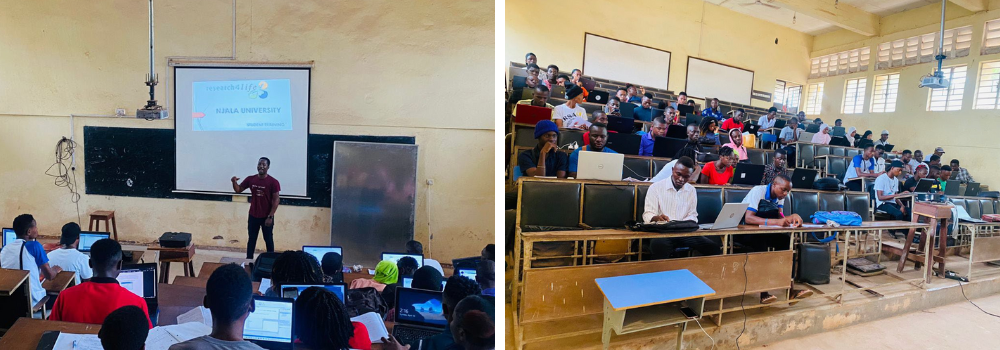
At Njala University, Country Connectors Elizabeth Sheriff and Thomas P. Songu have connected with unregistered universities to implement a Research4Life workshop to increase usage, as well as the number of registered institutions.
A series of meetings with lecturers and students to introduce them to the use of Research4Life resources has been done and as a result, the use of Research4Life resources is included as part of the program of activities to increase awareness within the university (e.g. Open Distance Learning policy development, and an Open Educational Resources workshop). The Njala University computer lab has worked collaboratively with the library department to enhance the usage of Research4 Life resources.
The Institute of Public Administration (IPAM) at University Sierra Leone has recently introduced a new course addressing emerging trends and needs in the research, promoting research and innovation, and academic excellence and growth. The introduction of this new course will expand the range of research and disciplines offered at IPAM, providing students with more opportunities to explore different fields of study – and will be important for increasing the use of Research4Life resources, noted Country Connector Patricia Y. Conteh.
Kenya
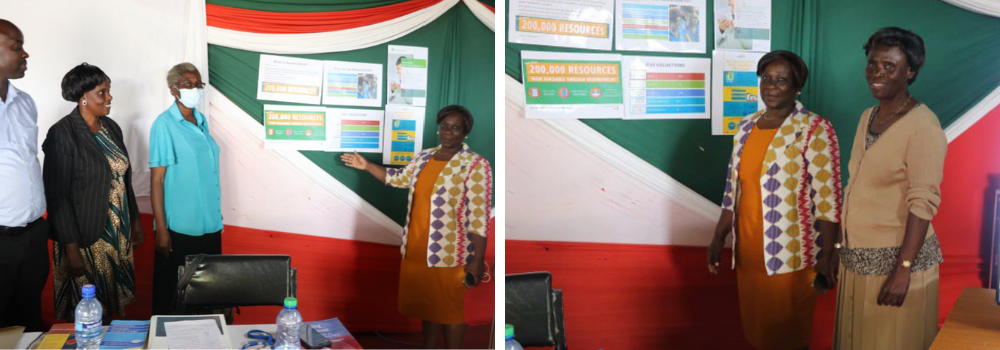
Country Connectors Isabel Musisi-Edebe, Joice. B . Baliddawa and Prof. Mabel Nangami have identified eligible but un-using or unregistered institutions, engaging with them and supporting their registration process for Research4Life – including special sessions at the Kenya Medical Training College (KMTC) and the Moi Teaching and Referral Hospitals (MTRH).
To enable more users to make effective use of Research4life content, Moi University has included Research4Life on the library portal for both students and lecturers to be able to access resources in their studies and for reference, teaching and research and outreach activities.
Bhutan
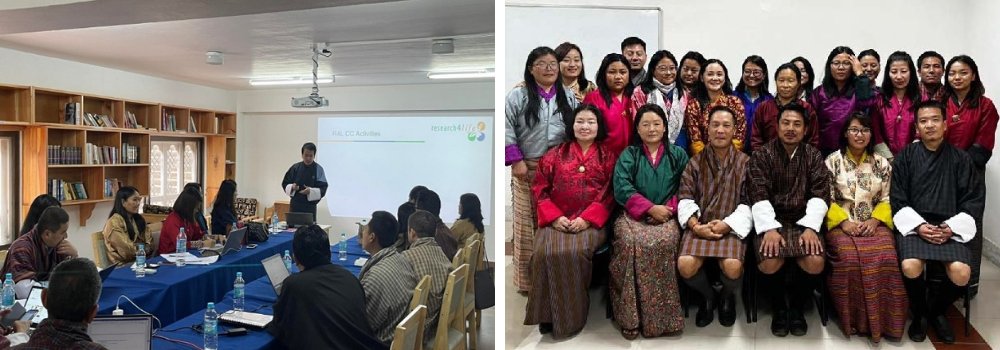
An outreach program was conducted in the eastern districts by Country Connector Phuntsho Norbu. While the library staff at many Colleges conduct advocacy programs for their users, they lack the in-depth knowledge of Research4Life for optimal use its resources, mainly because many of the library assistants do not have a qualification in library or information science.
Three local ambassadors were identified, and they will be guided and mentored to play a significant role in their community, helping with skills-building, and dissemination of news and updates. The Country Connector maintains a close collaboration with all the library staff of tertiary institutions, who directly seek advice and directives when they need information or face problems in accessing resources.
The Country Connector also raised the issue of collection gap, especially in business subjects, as shared by the users from a business college in Bhutan. The Research4Life Marketing and Communications, and Content Strategy & Policy Committees agreed to work with the College to understand how to provide the resources required.
At the same time, they identified a list of local publishers, and a meeting between Sarah Phibbs, the Research4Life Director for Publisher Partnerships, and the publishers is planned for the next quarter.
Why are we fundraising for Research4Life?
While we have accomplished a tremendous amount through volunteer efforts and in-kind contributions, scaling-up remains challenging.

